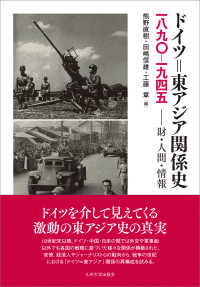Full Description
This book provides an ethno-historical study of the trade system in Ladakh (India), a busy entrepôt for Silk Route trade between Central and South Asia. Previously a part of global networks, Ladakh became an isolated border area as national boundaries were defined and enforced in the mid-20th century. As trade with Central Asia ended, social life in Ladakh was irrevocably altered.
The author's research combines anthropological, historical, and archaeological methods of investigation, using data from primary documents, ethnographic interviews and participation-observation fieldwork. The result is a cultural history of South and Central Asia, detailing the social lives of historical Ladakhi traders and identifying their community as a cosmopolitan social group. The relationship between the historical narratives and the modern ethnographic context illustrates how social issues in modern communities are related to those of the past. It is demonstrated that this relationship depends on both memories, narratives about the past constructed within present social contexts, and legacies, ways in which the past continues to shape present social interactions.
This book will be of particular interest to anthropologists, historians and specialists in South and Central Asian studies, as well as those interested in historical archaeology, science, sociology, political science and economics.
Contents
Introduction Part 1: Settings 1. Beyond the Roof of the World 2. Recognizing the Terrain Part 2: Historical Trade and Social Networks 3. The Family Business 4. Social Strategies for Profit 5. Living in a Material World 6. The Demise of Trade Part 3: The Modern Ethnographic Context 7. Ethnographic Encounters 8. The Memory and Legacy of Trade 9. Conclusion








